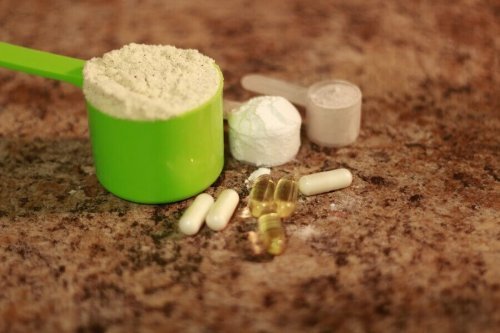Current Regulations on Doping

Doping is one of the great enemies of sports. There are notorious cases to highlight this dark side of competitions, in which the main damage is evident in the health of athletes.
People question sports ethics due to the unscrupulous practices of certain individuals who decide to put their lives at risk in order to win a trophy or the money it represents. Doping is a forbidden method in the sports world; thus, it’s regulated by international and national legislation.
The term doping means “taking drugs”. It refers to the use of any substance or practice that represents an unfair advantage for an athlete. We usually call it “playing dirty”, something that’s sadly, always been present in sports.
Why is doping prohibited?
In the sports world, there’s unanimity regarding doping as a dishonorable way to win. It doesn’t represent the true spirit of sports. The mass consumption of substances that risk people’s health requires regulations to sanction these practices.
The World Anti-Doping Agency (WADA) is an independent foundation responsible for this. It was created in Switzerland in 1999 and has the support of the International Olympic Committee (IOC).
In 2003, WADA approved the World Anti-Doping Code, which lists substances and methods that are banned. However, each state must internally incorporate its own regulations and rules.

Who participates in foul play?
In the world of sports, many people consume or use illegal methods that increase their physical competencies or imply substantial improvements in performance. There are cases in which the athlete becomes addicted to a forbidden substance. Many of them also suffer from short, medium, and long term health problems.
That’s why this practice dehumanizes the sport and turns it into a commercial product. The issue is so bad that in several anti-doping investigations, other participants, besides the athletes, were guilty of doping.
These accomplices can range from athletes or team members, doctors and therapeutic personnel, to coaches, national leaders, public or government officials and sports club owners.
For this reason, the penalty for unsportsmanlike practices includes the individual responsibility of an athlete, but also to the entire team of coaches and advisors. Likewise, those who directly or indirectly encourage, support, cover-up, or assist those who consume any of the drugs are subject to punishment.
Doping and the rules of sports
Violations of sports rules for fair play are classified as fraud and penalized by the WADA. It’s considered a robbery of the right to fair competition and decent treatment. Article 2 of the World Anti-Doping Code lists the ten infractions of the rules that may occur before, during, and after the event.
In common practice, the types of substances that athletes use to cheat are usually hormonal. The most popular ones are erythropoietin or EPO, steroids, and amphetamines. They also consume stimulants, such as strychnine, and some analgesics.
The methods for detecting its use have been perfected over time, thanks to technological developments; especially with those substances that the body itself generates. Due to this, the World Anti-Doping Code constantly updates the list of more than 100 drugs and products for athletes found in doping tests.
Updated list
In Spain, you can search for the list of prohibited substances in the Official State Gazette (BOE). In the most recent update of this document, the clearest definition of the term genetic doping stands out as the main novelty.

Several substances are subject to regulation as well, such as the transfer of 4-hydroxytestosterone to the endogenous androgenic anabolic steroids. Likewise, additional analogs of methylhexanamine are now part of the list.
It’s important to clarify that there are exceptions for athletes who have a need for medical treatments that use a forbidden substance as an active agent. In these cases, they must comply with a series of steps and request authorization for therapeutic use.
Athletes who don’t meet these requirements run the risk of a suspension and revocation of their event triumphs. It’s very useful to consult the different regulations of sports federations to be aware of the updates and learn all about sports doping.
Doping is one of the great enemies of sports. There are notorious cases to highlight this dark side of competitions, in which the main damage is evident in the health of athletes.
People question sports ethics due to the unscrupulous practices of certain individuals who decide to put their lives at risk in order to win a trophy or the money it represents. Doping is a forbidden method in the sports world; thus, it’s regulated by international and national legislation.
The term doping means “taking drugs”. It refers to the use of any substance or practice that represents an unfair advantage for an athlete. We usually call it “playing dirty”, something that’s sadly, always been present in sports.
Why is doping prohibited?
In the sports world, there’s unanimity regarding doping as a dishonorable way to win. It doesn’t represent the true spirit of sports. The mass consumption of substances that risk people’s health requires regulations to sanction these practices.
The World Anti-Doping Agency (WADA) is an independent foundation responsible for this. It was created in Switzerland in 1999 and has the support of the International Olympic Committee (IOC).
In 2003, WADA approved the World Anti-Doping Code, which lists substances and methods that are banned. However, each state must internally incorporate its own regulations and rules.

Who participates in foul play?
In the world of sports, many people consume or use illegal methods that increase their physical competencies or imply substantial improvements in performance. There are cases in which the athlete becomes addicted to a forbidden substance. Many of them also suffer from short, medium, and long term health problems.
That’s why this practice dehumanizes the sport and turns it into a commercial product. The issue is so bad that in several anti-doping investigations, other participants, besides the athletes, were guilty of doping.
These accomplices can range from athletes or team members, doctors and therapeutic personnel, to coaches, national leaders, public or government officials and sports club owners.
For this reason, the penalty for unsportsmanlike practices includes the individual responsibility of an athlete, but also to the entire team of coaches and advisors. Likewise, those who directly or indirectly encourage, support, cover-up, or assist those who consume any of the drugs are subject to punishment.
Doping and the rules of sports
Violations of sports rules for fair play are classified as fraud and penalized by the WADA. It’s considered a robbery of the right to fair competition and decent treatment. Article 2 of the World Anti-Doping Code lists the ten infractions of the rules that may occur before, during, and after the event.
In common practice, the types of substances that athletes use to cheat are usually hormonal. The most popular ones are erythropoietin or EPO, steroids, and amphetamines. They also consume stimulants, such as strychnine, and some analgesics.
The methods for detecting its use have been perfected over time, thanks to technological developments; especially with those substances that the body itself generates. Due to this, the World Anti-Doping Code constantly updates the list of more than 100 drugs and products for athletes found in doping tests.
Updated list
In Spain, you can search for the list of prohibited substances in the Official State Gazette (BOE). In the most recent update of this document, the clearest definition of the term genetic doping stands out as the main novelty.

Several substances are subject to regulation as well, such as the transfer of 4-hydroxytestosterone to the endogenous androgenic anabolic steroids. Likewise, additional analogs of methylhexanamine are now part of the list.
It’s important to clarify that there are exceptions for athletes who have a need for medical treatments that use a forbidden substance as an active agent. In these cases, they must comply with a series of steps and request authorization for therapeutic use.
Athletes who don’t meet these requirements run the risk of a suspension and revocation of their event triumphs. It’s very useful to consult the different regulations of sports federations to be aware of the updates and learn all about sports doping.
All cited sources were thoroughly reviewed by our team to ensure their quality, reliability, currency, and validity. The bibliography of this article was considered reliable and of academic or scientific accuracy.
- Federación Española de Atletismo. Reglamento de dopaje. 2018. Extraído de: http://www.rfea.es/normas/pdf/reglamento2018/14_06_antidopaje.pdf
- Agencia Estatal Boletín Oficial del Estado: lista de sustancias y alimentos prohibidos. 2019. https://www.boe.es/boe/dias/2019/01/09/pdfs/BOE-A-2019-231.pdf
- Agencia Española de Protección de la Salud en el Deporte. Normativa nacional sobre el dopaje. Extraído de: https://aepsad.culturaydeporte.gob.es/normativa/normativa-nacional.html
This text is provided for informational purposes only and does not replace consultation with a professional. If in doubt, consult your specialist.








